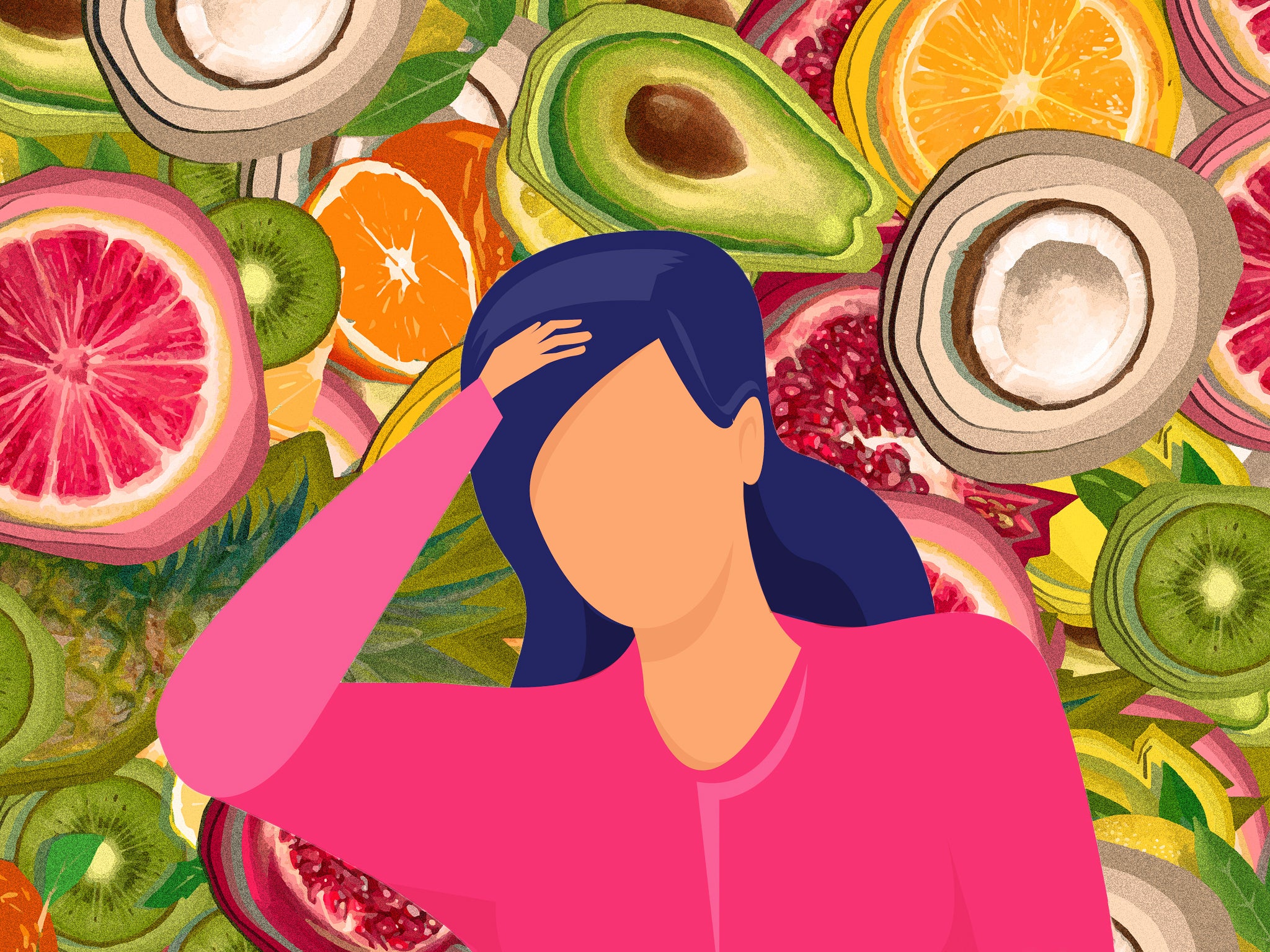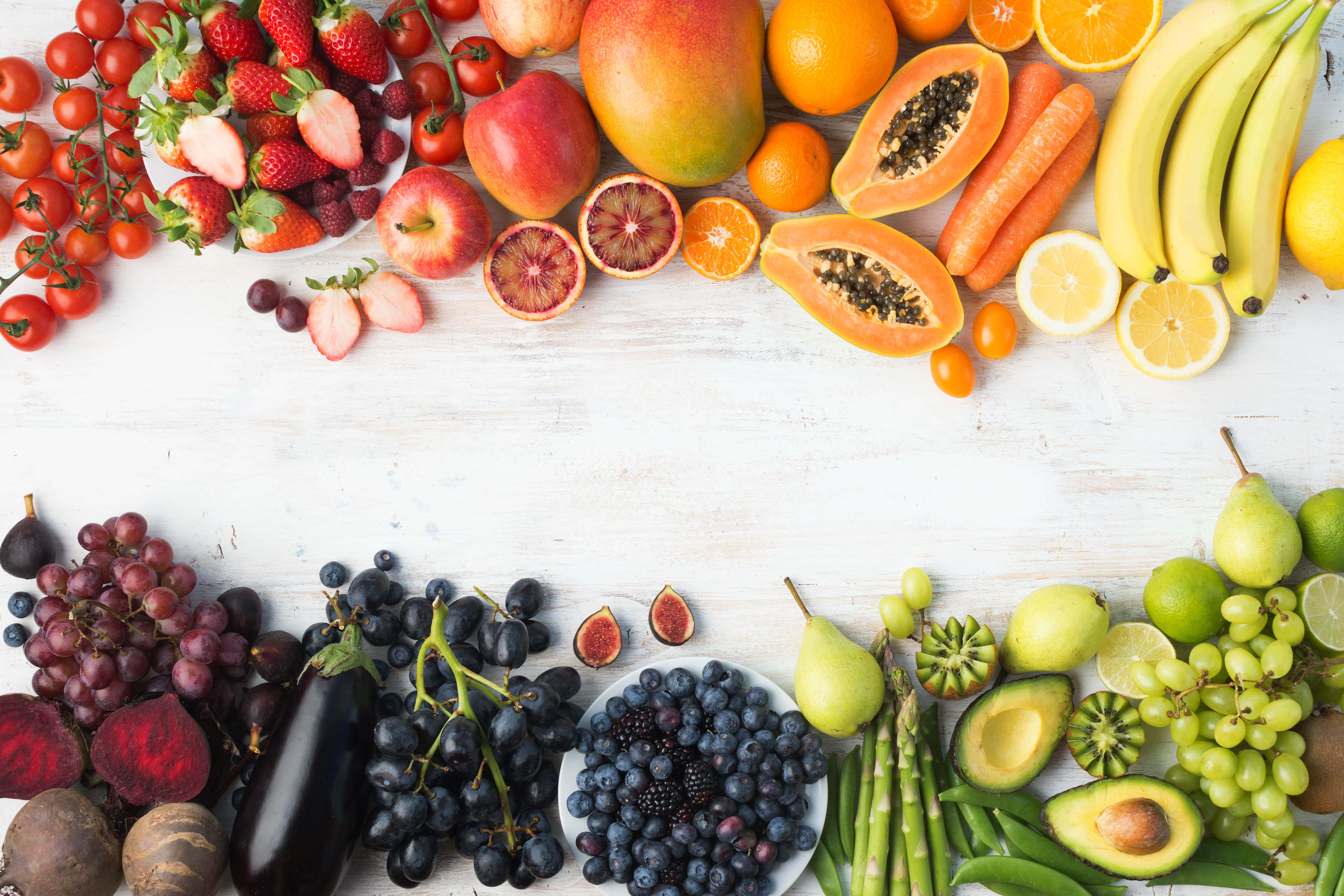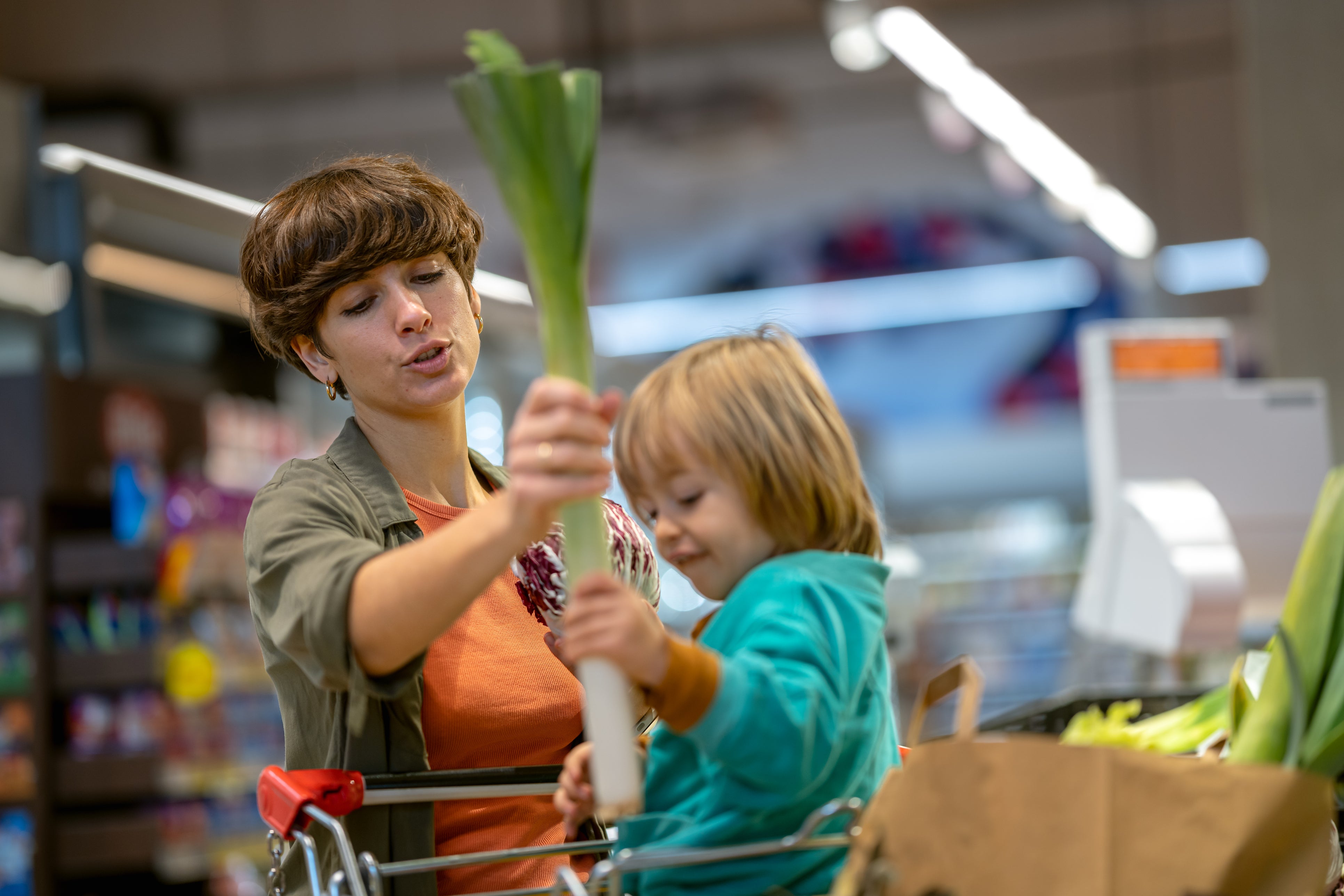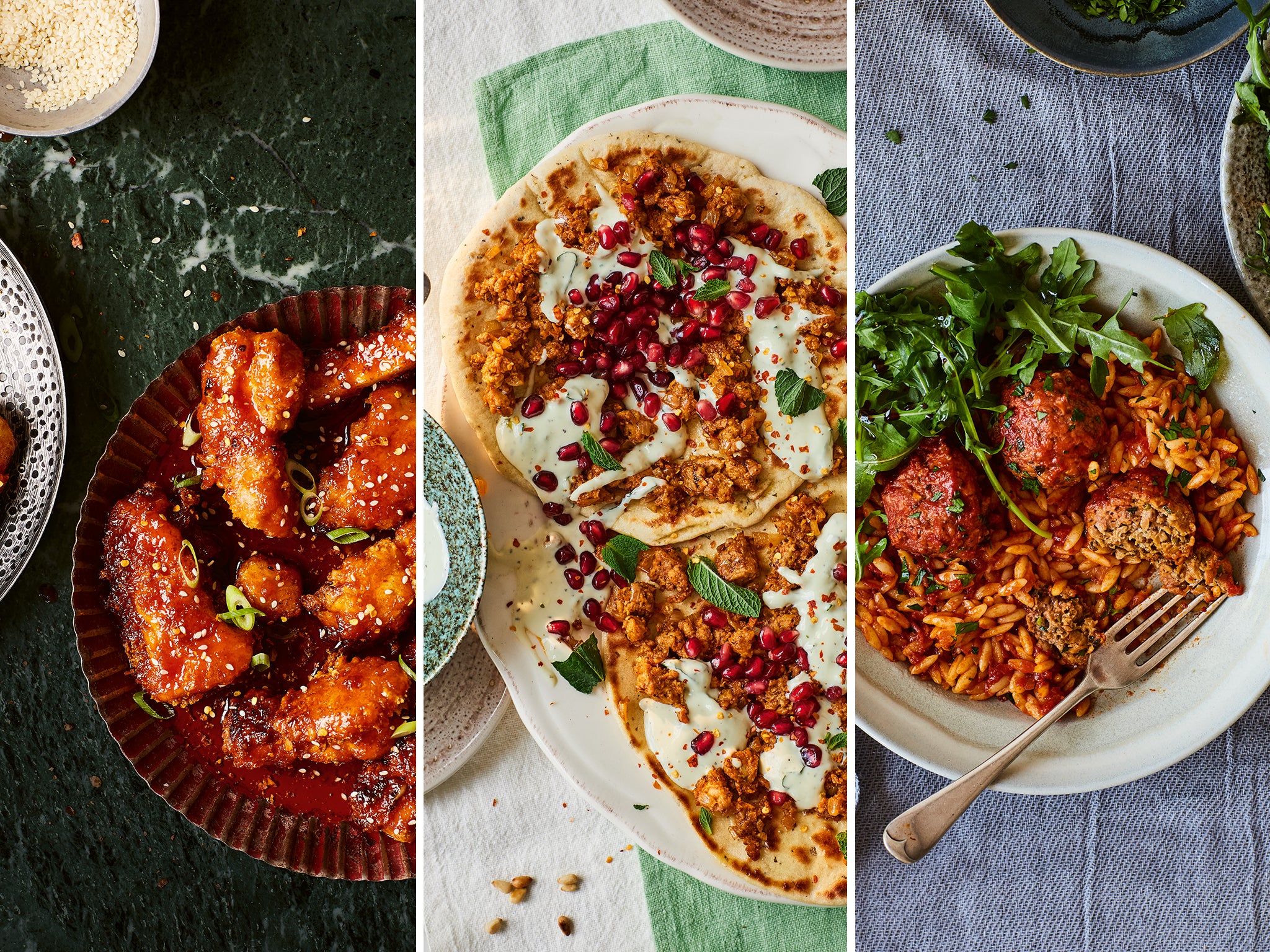10 things you only know if you’ve been a vegan as long as I have
New research shows that eating a healthy plant-based diet can cut the risk of the disordered breathing condition sleep apnoea. Another reason to try a vegan diet maybe, but there are things that the vegan-curious should know before they start, says Flic Everett


For many of us, the idea of giving the overloaded system a good clean out with plant-based eating, helping the planet and perhaps even losing a few pounds sounds like a win.
But as a mostly vegan who was purely vegan for years, I have news: if you want to do it properly, you have to commit, just as you would to a pricey gym membership or learning Hungarian. Being vegan isn’t simply a case of “not eating animal products”. It also means paying close attention to your health, high-level social management and understanding the difference between “vegan” and “actually good for you”. Here’s how to get it right – based on my years of trial and error.

1. It’s not automatically healthy
Now that we know that ultra-processed foods (UPFs) are slowly killing us, it’s also more noticeable that a lot of vegan foods covered in plant logos and rustic-looking promises are also UPFs.
Entire “vegan” sections are stuffed with processed, packaged foods made from unpronounceable chemicals and the withered ghosts of peas and soy. You’re generally better off with a can of chickpeas and a pack of passata. Herbs, spices, stock cubes, garlic and chillies are your new best friends, and you need a decent protein source (as in, without it you’ll be malnourished) so invest in nuts, tofu and pulses, rather than “beef-style burgers” and products called things like, “Oops! it’s not chicken but it could be if you squint”. Now and then won’t hurt, but as a staple diet, vegan UPFs aren’t much better than meaty UPFs.
2. You need supplements
“I can get everything my body needs from a natural vegan diet” is all very hippie-ish and charming, but it’s also rubbish. Humankind has never in history survived for very long on a purely animal-free diet without supplements. You need calcium, because you’re not consuming dairy, Vitamin B12, which maintains blood and nerve cell health and helps to make DNA, and omega-3 fatty acids.
According to the Harvard School of Public Health, omega-3s “build cell membranes throughout the body ... are the starting point for hormones that regulate blood clotting, and inflammation [and] help prevent heart disease and stroke.”
So you’d better buy the algae version. You may also need iron (to prevent anaemia) and zinc (which supports the immune system and regulates metabolism) too. Best to accept you’re going to rattle.
3. You need to learn new words
As a vegan, you’ll quickly realise that just because a product doesn’t obviously feature beef or pork, it doesn’t mean it’s animal-free. An entire glossary of sneaky words is employed in ingredients lists, and you need to learn them all, for both food and cosmetics.
The Vegan Society offers a helpful primer, but frequent offenders include casein and whey (in cereals, breads and granola), gelatine (in jelly babies, sadly) and tallow (another word for suet).
Natural Red 4 is derived from cochineal beetles, and natural squalene from sharks. Also look out for L-cysteine in bread, lactic acid, stearic acid and lactose.

4. Preaching doesn’t work
There are a lot of angry vegan jokes out there. “How do you know someone’s vegan? Don’t worry, they’ll tell you,” and so on. People like eating meat, cheese, fish and milk, and may feel threatened by those who make a moral choice to avoid them.
They will ask (not always friendly) questions and make (generally assertive) statements, beginning with “Yes, but how do you get your protein?” passing through “Actually, soy crops destroy the rainforest too,” and ending with “seriously, what do you even eat?”
The temptation is to justify yourself, perhaps argue, explain why everyone should be vegan, and add that you’ve never felt better. Don’t. You won’t create converts, you’ll just lose friends, sound pompous, feel defensive, and end up yelling “Get out of my house, cow murderer!” If they really want to know, they’ll ask.
5. Habits will change
Turning vegan generally means a dramatic increase in roughage and fibre intake. One American study found the average intake is 10-15 grams a day, while the recommended level is around 40 grams.
Fruit, vegetables and grains are all fibrous, and suddenly tripling (or more) your consumption will prove a shock to your gut bacteria. It will adapt over a fortnight or so, but initially, you may well suffer bloating, gas and possibly a few extra trips to the toilet.
It’s important to drink plenty of water to keep things moving. It’s not that all the tiresome jokes about eating beans are true – just that they might be true initially.
You may also experience skin break-outs, as switching to a vegan diet can affect hormone balance, and some people find they feel tired and suffer headaches at first.
Adults need 1200-2500 kcals a day, and it’s easy to under-eat on a restricted diet. Some new vegans find it easier to switch to several smaller meals a day.
6. You need to learn to cook
If you’re a good cook, there are hundreds of thousands of vegan recipes online, and many excellent cookbooks full of inspiration. If you’re not, you’re going to need to learn or you’ll be living on fake cheese pizza and beans on toast for all eternity (or until you quit).
Vegan food can be a very boring uniform 1970s brown sludge if you choose to exist on lentil curry and veg chilli. Invest in cookbooks by Aine Carlin, Gaz Oakley, Bosh!, Bettina’s Kitchen and The Happy Pear for easy, delicious and colourful vegan food.

7. Don’t expect others to join in
When you’re the only one in the family who’s going vegan, your life will be tricky. If you and your partner are keen, don’t expect your children to feel the same – and if they’re young, you’ll need advice from a dietician on supplements, as young children’s health and brain development can be compromised without the full spectrum of nutrition.
A German study found that “the required quantities” of nutrient intake from pulses, nuts and seeds alone “cannot be readily transferred to children”.
It may also prove expensive to be the only vegan in the village (or house) so aim for adaptable foods – eg pasta that can be served with and without meat – rather than entirely separate meals.
8. You will need snacks
When you leave the house as a vegan, you take your life in your hands, snack-wise. Service stations will have sold out of their one Vegan Breakfast Sandwich, shops will have a packet of salted nuts, everything is processed, and you will spend your train journey trying to make one banana last through three hours of delays and a replacement bus.
Always carry snacks – I found unsalted nuts, seeds, protein bars, dips and crackers and dark chocolate got me through. But don’t ever assume you can just “buy something when you get there”. The world has not yet fully caught up with the vegan snack bus.
9. Watch out for allergies
This is where I went wrong. Believing all vegan food to be good for me, I went big on soy, pulses, and leafy greens, unaware that they all contain large amounts of nickel. My mild nickel allergy flared into rashes, pain and bleeding gums, and it took two years and four doctors to diagnose it.
You must know whether you have a gluten intolerance, soy allergy or histamine response to certain foods before you make them a key part of your diet – which means educating yourself about what they contain. If you develop a rash, insomnia or dizzy spells, look at the recent changes in your diet first.
10 Wine is often not vegan
Of course, wine and beer are vegan! No, hold it right there. A lot of wine is filtered through isinglass, as is beer, to give it clarity – and isinglass is derived from the swim bladders of fish. Afterwards, minute particles of fish remain in the liquid.
Traditional winemaking processes might also use albumin and casein (egg white, used in red wine, and milk protein, used in white). Look for bottles marked “unfiltered” or “unfined”, or check the Barnivore.com website, which lists vegan brands of beer and wine. The good news is, most spirits are vegan – so G&T it is. Unless you are doing dry January too. In which case, good luck.




Join our commenting forum
Join thought-provoking conversations, follow other Independent readers and see their replies
Comments